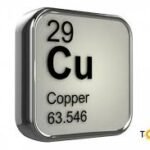Chemistry and Waste Technology: Innovating Waste Solutions
Welcome to our website dedicated to the fusion of chemistry and waste technology. The collaboration between these two fields is crucial for developing innovative solutions to tackle the global waste problem and promote a circular economy. Join us as we explore the intersection of chemistry and waste technology, uncovering transformative applications and advancements that are shaping the future of waste management.

- Waste Treatment and Recovery: Chemistry plays a vital role in waste treatment and recovery processes. Chemists develop methods for the safe and efficient treatment of different types of waste, such as solid waste, hazardous waste, and electronic waste. These technologies aim to minimize environmental impact and maximize resource recovery through techniques like recycling, composting, and energy generation.
- Waste-to-Energy Conversion: Chemistry contributes to the development of waste-to-energy conversion technologies. Chemists work on processes like pyrolysis, gasification, and anaerobic digestion, which convert waste materials into valuable energy sources such as biofuels, biogas, and heat. These technologies reduce reliance on fossil fuels and help address energy and waste management challenges.
- Chemical Recycling: Chemistry drives advancements in chemical recycling, which involves breaking down waste materials into their chemical components for reuse or conversion into new products. Chemists develop innovative processes to depolymerize plastics, recover valuable chemicals from electronic waste, and transform waste streams into raw materials for manufacturing industries. Chemical recycling supports the transition to a more sustainable and circular economy.
- Waste Minimization and Source Separation: Chemistry plays a crucial role in waste minimization and source separation strategies. Chemists develop techniques for waste characterization, including analysis of composition and identification of hazardous components. This knowledge helps optimize waste collection, sorting, and recycling processes, leading to more efficient waste management practices.
- Environmental Remediation: Chemistry is instrumental in environmental remediation, addressing pollution and contamination issues. Chemists develop technologies to remediate soil and water contaminated with hazardous substances, such as heavy metals and persistent organic pollutants. These technologies aim to restore ecosystems and protect human health.
- Waste Analytics and Management Systems: Chemistry contributes to waste analytics and management systems. Chemists develop analytical methods and sensors to monitor and analyze waste composition, quality, and environmental impact. These tools provide valuable data for waste management planning, decision-making, and policy development.
- Sustainable Packaging and Materials: Chemistry plays a vital role in developing sustainable packaging and materials. Chemists work on eco-friendly alternatives to conventional plastics, such as biodegradable polymers and compostable materials. These innovations help reduce waste generation and promote a more sustainable approach to packaging and product design.
At our website, we explore the dynamic fusion of chemistry and waste technology, uncovering transformative applications and advancements that are driving waste solutions. Join us as we delve into waste treatment and recovery, waste-to-energy conversion, chemical recycling, waste minimization and source separation, environmental remediation, waste analytics and management systems, and sustainable packaging and materials. Welcome to a place where chemistry and waste technology converge to innovate waste management practices and create a more sustainable future.

